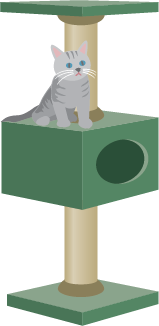Climate Change
1. How has climate change impacted your country?
"Climate change
has had a significant impact on my country in recent years. We have seen an
increase in extreme weather conditions, such as heatwaves, heavy rainfall, and
even wildfires. Summers are becoming hotter, which affects agriculture and
water supply, making it harder for farmers to grow crops. Additionally, coastal
areas are experiencing rising sea levels, leading to erosion and flooding in
some regions. These changes not only harm the environment but also affect
people's health and the economy. If we don’t take action soon, the situation
will only get worse."
2. How can we reduce greenhouse gas emissions to combat climate change?
"Reducing
greenhouse gas emissions is essential in the fight against climate change. One
of the most effective ways is to shift from fossil fuels to renewable energy
sources such as solar, wind, and hydroelectric power. Governments should also
invest in public transportation and encourage people to drive less by promoting
carpooling and cycling. Additionally, industries must adopt greener technologies
to reduce pollution. On an individual level, we can cut down on energy
consumption by using energy-efficient appliances and being more mindful of our
daily habits, such as turning off lights when not needed."
3. How could preventing deforestation help combat climate change?
"Forests play a
crucial role in absorbing carbon dioxide, one of the main greenhouse gases
responsible for global warming. When trees are cut down, not only do we lose
this natural way of reducing CO₂,
but the carbon stored in trees is also released back into the atmosphere.
Preventing deforestation helps maintain biodiversity, preserves ecosystems, and
ensures that we have clean air and a stable climate. Governments and
organizations should focus on reforestation projects, sustainable logging
practices, and stricter laws to protect forests from illegal
deforestation."
4. Why is raising awareness an effective way to combat climate change?
"Raising
awareness is one of the most powerful tools in combating climate change because
it educates people and encourages them to take action. Many individuals are
unaware of how their lifestyle choices impact the environment. By spreading
information through social media, educational campaigns, and environmental
programs, we can inspire people to make more sustainable choices, such as
recycling, conserving energy, and reducing waste. When more people understand
the urgency of climate change, they are more likely to demand policies that
promote sustainability and hold companies accountable for their environmental
impact."
Education
1. What are the benefits of using Artificial
Intelligence in education?
"Artificial Intelligence has revolutionized education by making learning more personalized and accessible. One of the key benefits is that AI-powered systems can adapt to individual students’ needs, offering customized learning experiences. For example, AI tutors can identify a student’s weaknesses and provide targeted exercises to improve their understanding. Additionally, AI can automate administrative tasks such as grading and scheduling, allowing teachers to focus more on actual teaching. Another advantage is that AI makes education more inclusive by offering real-time translations, speech-to-text tools, and learning assistance for students with disabilities. Moreover, AI-powered platforms can provide access to quality education for students in remote areas, bridging the gap between traditional and digital learning environments."
2. Why could the use of AI in education
result in a lack of personal interaction?
"Although AI can enhance learning, it also poses a risk of reducing human interaction in education. Traditional learning environments encourage students to engage in discussions, collaborate on projects, and seek guidance from teachers, which helps develop social and communication skills. However, with AI-driven learning, students may become overly dependent on virtual tutors and online platforms, leading to less face-to-face interaction with teachers and peers. This lack of interpersonal communication could negatively impact teamwork and emotional intelligence, which are essential skills in both academic and professional settings. Furthermore, AI lacks empathy and the ability to provide moral and emotional support, which are crucial aspects of a teacher-student relationship."
3. Why could the use of AI in education
reduce critical thinking?
"AI systems are designed to provide quick answers and solutions, which may discourage students from thinking critically and solving problems independently. When students rely too much on AI-generated responses, they may stop questioning information or analyzing different perspectives, which are essential skills for academic growth. In contrast, traditional education methods encourage debate, logical reasoning, and creative problem-solving, all of which help students develop a deeper understanding of subjects. Additionally, AI operates based on algorithms and patterns, meaning it may not always present diverse viewpoints or challenge students’ assumptions, leading to a more passive learning experience. Therefore, while AI can be a helpful tool, it is crucial to balance its use with traditional teaching methods that promote independent thinking."
4. Why could implementing AI in education
involve significant costs?
"Integrating AI into education requires advanced technology,
software development, and continuous system maintenance, all of which come at a
high cost. Schools and universities need to invest in AI-powered platforms,
smart devices, and infrastructure to support AI learning environments.
Moreover, training teachers and staff to use AI tools effectively can also be
expensive and time-consuming. Additionally, AI systems require frequent updates
and security measures to ensure data privacy and accuracy, further increasing
the financial burden. These costs can be particularly challenging for
underfunded schools or developing countries, where access to basic educational
resources is already limited. As a result, while AI offers many advantages, its
implementation in education remains a costly challenge that needs careful
planning and investment."
Space Technology
1. What aspects of space travel fascinate you the most?
"Space travel is
fascinating for many reasons, but what excites me the most is the possibility
of exploring new planets and understanding the mysteries of the universe. The
idea that humans might one day colonize Mars or even travel beyond our solar
system is incredible. I’m also fascinated by the advancements in technology
that space exploration has brought to everyday life, such as GPS, medical
imaging, and even water purification systems. The more we explore space, the
more we learn about our own planet and our place in the universe."
2. How can satellites enhance communication?
"Satellites play
a crucial role in modern communication by enabling global connectivity. They
allow us to make phone calls, use GPS, and access the internet, even in remote
areas where traditional networks are unavailable. For example, satellite
communication is essential in disaster-stricken regions where terrestrial
infrastructure is damaged. Additionally, they help improve real-time
broadcasting and ensure reliable data transfer for businesses, governments, and
scientific research. Without satellites, global communication would be far less
efficient and accessible."
3. In what way do satellites contribute to weather forecasting?
"Satellites are
essential for accurate weather forecasting because they provide real-time data
on atmospheric conditions. They monitor cloud formations, track storms, and
measure temperature and humidity levels across the globe. For instance,
meteorologists rely on satellite images to predict hurricanes, allowing
authorities to issue warnings and evacuate areas in danger. This technology has
saved countless lives by improving our ability to prepare for extreme weather
events such as typhoons, heatwaves, and heavy snowfall."
4. How can satellites be useful for transportation?
"Satellites have
revolutionized transportation by making navigation systems more precise and
efficient. GPS technology, which relies on satellites, allows drivers, pilots,
and sailors to determine their exact location and plan the best routes.
Additionally, satellites help monitor traffic patterns, reducing congestion in
urban areas. They also play a vital role in air traffic control, ensuring safe
flights by providing real-time data on weather conditions and aircraft
positioning. Without satellites, modern transportation would be much slower,
less efficient, and more prone to errors."
Endangered Animals
1. Why are some wild animals at risk of extinction?
"There are
several reasons why wild animals are at risk of extinction, but the most
significant factors include habitat destruction, climate change, and illegal
hunting. Deforestation, for instance, destroys the natural homes of many
species, making it difficult for them to survive. Additionally, global warming
affects ecosystems, altering food availability and breeding patterns. Poaching
is another major threat, as some animals are hunted for their fur, ivory, or
medicinal purposes. Without intervention, many species could disappear forever,
disrupting ecosystems and reducing biodiversity."
2. Why is it vital for wildlife reserves to offer safe breeding areas
for endangered species?
"Wildlife
reserves play a crucial role in conservation, and providing safe breeding areas
is essential for increasing endangered animal populations. Many species
struggle to reproduce in the wild due to habitat loss, predation, or human
interference. In a protected environment, they can breed without threats,
allowing populations to grow and eventually be reintroduced into their natural
habitats. Without these efforts, some species might never recover, leading to
their eventual extinction."
3. Why is it crucial for wildlife reserves to prevent illegal hunting?
"Preventing
illegal hunting is vital because poaching is one of the leading causes of
extinction for many species. Animals such as rhinos, elephants, and tigers are
often hunted for their horns, tusks, or fur, driving them closer to extinction.
Wildlife reserves must enforce strict anti-poaching laws, employ rangers, and
use modern technology like drones and surveillance cameras to monitor protected
areas. If illegal hunting continues unchecked, it could wipe out entire
species, damaging ecosystems and reducing biodiversity."
4. Why is it good for wildlife reserves to educate the public about
endangered animals?
"Educating the
public about endangered animals is essential because awareness leads to action.
Many people are unaware of how human activities harm wildlife, and once they
understand the impact, they are more likely to support conservation efforts.
Wildlife reserves can organize educational programs, guided tours, and
interactive experiences to teach visitors about the importance of protecting
species. When people are informed, they are more likely to adopt sustainable
habits, support conservation projects, and spread awareness, ultimately helping
to protect endangered animals."
Waste Management
1. What risks are posed by landfill sites?
"Landfill sites
pose serious environmental and health risks. First of all, they release harmful
gases like methane, which contribute to climate change. Methane is a potent
greenhouse gas, and large amounts of it can accelerate global warming.
Additionally, landfills contaminate soil and water sources as toxic chemicals
from waste seep into the ground, endangering wildlife and human health. Another
issue is that they take up a lot of space, and as cities grow, finding new
landfill sites becomes more difficult. If we don’t take action, waste will
continue to pile up, creating even bigger problems for future
generations."
2. How can promoting recycling help reduce landfill waste?
"Recycling is one
of the most effective ways to reduce landfill waste because it allows materials
to be reused instead of discarded. When we recycle paper, plastic, glass, and
metal, we reduce the demand for raw materials, which also helps protect natural
resources. For example, recycling one ton of paper can save dozens of trees.
Governments and businesses should invest in better recycling facilities and
educate people on how to separate their waste properly. If more people actively
recycle, we can significantly decrease the amount of waste that ends up in
landfills."
3. How can choosing reusable products help minimise landfill waste?
"Using reusable
products is an excellent way to reduce waste because it prevents single-use
items from ending up in landfills. For example, carrying a reusable water
bottle instead of buying plastic ones can cut down on plastic waste
significantly. The same goes for shopping bags, coffee cups, and even
rechargeable batteries. When people choose durable, long-lasting products
instead of disposable ones, they contribute to a more sustainable lifestyle.
This small change in daily habits can have a huge impact on reducing the amount
of waste we produce."
4. How can reducing our purchases help minimise landfill waste?
"One of the main
reasons we produce so much waste is that we consume too much. Many people buy
things they don’t really need, which leads to excessive waste. By adopting a
more minimalist approach and only purchasing essential items, we can reduce the
amount of packaging, plastic, and other materials that end up in landfills.
Additionally, buying second-hand products or repairing items instead of
throwing them away can also help. If more people were mindful of their
consumption, we could dramatically decrease the amount of waste polluting our
environment."
Shopping
1. Why is it important to be a careful and informed consumer?
"Being a careful
and informed consumer is important because it helps us make better purchasing
decisions. When we research products before buying, we can ensure that we are
getting the best value for our money. It also helps us avoid scams, poor-quality
items, or unethical brands. Additionally, informed consumers are more likely to
support companies that have fair labor practices and environmentally friendly
policies. In today’s world, where advertisements can be misleading, it is
essential to stay educated and make responsible choices."
2. Why should we compare prices and quality from different shops?
"Comparing prices
and quality from different shops is essential to make sure we get the best
deal. Many stores sell the same products at different prices, so shopping
around can save us a lot of money. However, price isn’t the only factor—we also
need to consider quality. A cheaper product might not last as long, meaning we
may end up spending more in the long run. By doing some research before
purchasing, we can find products that offer both affordability and
durability."
3. Why should we buy eco-friendly products?
"Buying
eco-friendly products is crucial for protecting the environment. Many everyday
items, such as plastic packaging or chemical-based cleaning products,
contribute to pollution and climate change. By choosing sustainable
alternatives, like biodegradable packaging and organic materials, we reduce our
carbon footprint. Additionally, eco-friendly products are often safer for our
health, as they contain fewer harmful chemicals. If more people choose
environmentally friendly options, companies will be encouraged to produce more
sustainable goods, benefiting both the planet and future generations."
4. Why should we avoid spontaneous purchases?
"Spontaneous
purchases often lead to wasted money and unnecessary clutter. When we buy
something on impulse, we don’t always think about whether we truly need it or
if it’s worth the price. This can result in overspending and financial stress.
Additionally, impulse buying can contribute to excessive consumption, which
harms the environment by increasing waste and resource depletion. A good way to
avoid this is to make a shopping list and stick to it, ensuring that we only
buy what is necessary and useful."

































